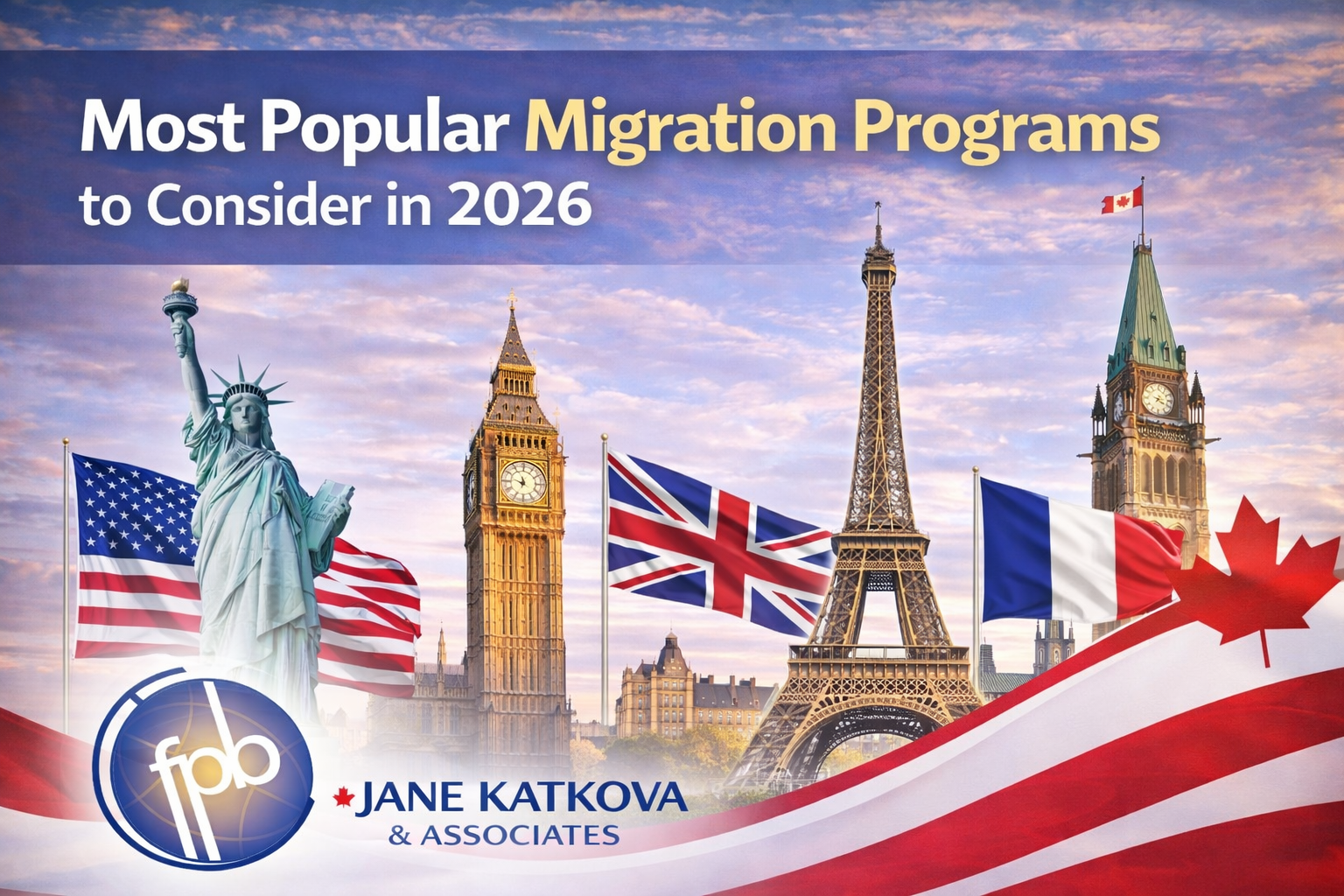8 Tax Benefits of Second Citizenship Programs [2025 GUIDE]
![8 Tax Benefits of Second Citizenship Programs [2025 GUIDE]](https://citizenshipbyinvestment.global/wp-content/uploads/2025/03/tax-benefit-second-citizenship.webp)
Now Is The Best Time For Citizenship By Investment
Second citizenship programs are often viewed as pathways to enhanced global mobility, yet they can also deliver critical tax advantages.
In specific jurisdictions, investors encounter lower or zero personal income tax, reduced capital gains liabilities, and flexible corporate tax arrangements.
This dual approach—combining streamlined travel with strategic wealth management—has made second citizenship programs increasingly appealing to high-net-worth individuals (HNWIs) and global entrepreneurs.
Below, we explore eight core tax benefits of these programs and show how they can shape a more efficient financial landscape for you and your family.
Understanding Second Citizenship & Taxation
Second citizenship—often referred to as dual nationality—means being a legal citizen of more than one country.
While many applicants initially seek these programs for global mobility, the potential tax-related benefits are equally significant.
Most nations impose tax obligations on income, capital gains, or inheritances based on an individual’s status as a resident or citizen.
By obtaining a second passport in a jurisdiction known for favorable or zero-tax regimes, you may lower your overall tax burden.
In practice, such “tax-friendly” countries do not always impose personal income tax, inheritance tax, or capital gains tax on assets held within or outside their borders.
Additionally, many maintain flexible corporate tax structures that can aid international entrepreneurs.
However, it is crucial to confirm that any tax planning strategy adheres to the rules of both your home country and the second country of citizenship.
This ensures that all gains remain fully legal and compliant with applicable global taxation laws.
8 Tax Benefits of Second Citizenship Programs
Below are eight ways that obtaining a second citizenship can optimize your tax situation, depending on the specific jurisdiction.
1. Reduced or Zero Personal Income Tax
Many second-citizenship countries implement either a low-rate or zero personal income tax policy.
This benefit can lead to significant savings for individuals whose primary income derives from salaries, dividends, or offshore businesses.
By moving your tax residency—or having the option to do so—you may drastically lower your annual tax obligations while remaining compliant with global regulations.
2. Exemptions on Capital Gains & Dividends
Certain jurisdictions known for their citizenship-by-investment programs offer complete or partial relief on capital gains tax.
For investors in real estate, stocks, or other appreciating assets, this can serve as a significant motivator.
Additionally, some of these countries do not tax dividends earned from companies outside their borders, further enhancing your net returns.
3. Inheritance & Estate Tax Relief
A few popular second citizenship destinations have zero inheritance or estate tax, allowing you to pass on property and other assets to your heirs without a large tax burden.
This provision often appeals to families aiming to protect generational wealth. It also simplifies estate planning, removing concerns about high tax liabilities upon a benefactor’s passing.
4. Wealth Protection & Offshore Structures
Second citizenship can open doors to offshore banking, trusts, and corporate structures in tax-friendly environments.
These jurisdictions provide enhanced privacy and robust asset protection laws.
By positioning your funds in stable, internationally recognized banking systems, you can safeguard your wealth from regional volatility while still adhering to legal frameworks.
5. Favorable Corporate Tax Environment
Entrepreneurs and business owners often gravitate toward countries that grant corporate tax incentives or reduced corporate tax rates.
With second citizenship, you might establish international ventures under the new country’s more accommodating tax code, optimizing revenue streams.
While this approach should consistently be implemented in accordance with the regulations of each nation, it has the potential to significantly reduce overhead costs for international operations.
6. No Worldwide Income Tax in Certain Jurisdictions
Some nations only tax income generated within their territory, leaving foreign-earned income untouched. By securing citizenship in such a jurisdiction, you avoid double taxation on salary or business gains earned overseas.
This distinction can translate into meaningful annual savings, especially for HNWIs with diverse international income sources.
7. Tax Treaties & Double Taxation Avoidance
Many of these second-citizenship countries hold bilateral or multilateral tax treaties with other regions. Such agreements help prevent double taxation, ensuring that you are not taxed twice on the same income.
This feature is crucial for global professionals or investors who operate across multiple countries, as it simplifies financial planning and reduces administrative headaches.
8. Strategic Family Tax Planning
Finally, second citizenship can benefit the entire household. Parents, children, and even grandparents are often eligible under a single application.
Once they gain citizenship, the family can enjoy the same tax advantages. From passing down assets to covering educational costs abroad, these benefits can streamline long-term financial strategies for multiple generations.
Comparative Examples by Program
Although each second citizenship jurisdiction structures its taxes differently, here are a few high-level examples from popular programs:
- Antigua & Barbuda
- No worldwide income tax: Individuals are not taxed on foreign-sourced income.
- No inheritance or capital gains taxes: Investors often use this for estate planning.
- Minimal residency requirements: Only five days in the first five years, making tax residency flexible.
- St. Lucia
- Zero personal income tax on foreign income: A draw for global earners.
- Attractive investment routes: Real estate purchases can potentially offset tax burdens through capital appreciation, exempt from local capital gains taxes.
- Malta
- Extensive double taxation treaties: Significant for those doing business across Europe.
- Personal income tax rules: Though not entirely tax-free, certain structures allow beneficial remittance-based taxation on foreign earnings.
- Dominica
- No wealth, inheritance, or capital gains taxes: Ideal for passing down assets tax-efficiently.
- Streamlined offshore banking: Provides robust privacy and asset protection.
- Cyprus (EU Residency to Citizenship Path)
- Corporate tax advantages: Known for one of the lower corporate tax rates in the EU.
- EU benefits: Access to European markets, with potential for streamlined cross-border business operations.
Note: Each program may adjust its tax regulations over time. Always consult updated government guidelines or trusted advisors before making final decisions.
Who Stands to Benefit Most?
- Entrepreneurs and Business Owners
- Those who manage cross-border ventures can gain from favorable corporate tax environments and expanded market access.
- Reduced corporate tax rates or exemptions on certain business activities can lead to better profit margins.
- High-Net-Worth Individuals (HNWIs)
- Individuals holding substantial assets or diverse portfolios can leverage beneficial tax regulations to protect wealth.
- Zero inheritance, gift, or capital gains taxes can help in long-term estate planning and wealth transfer to the next generation.
- Retirees and Property Investors
- Second citizenship often comes with real estate investment opportunities that appreciate over time while remaining free from harsh capital gains taxes.
- Retirees looking to spend their later years in a lower-tax jurisdiction or a warmer climate find added benefits in these programs.
- Frequent Travelers
- Professionals or digital nomads working remotely from multiple countries can benefit from reduced or zero worldwide income tax in certain CBI jurisdictions.
- Fewer residency constraints allow more freedom to move without heavy tax obligations.
- Families Seeking Tax-Efficient Legacies
- Parents can include children and other dependents under one citizenship application, consolidating potential tax savings.
- No inheritance or estate taxes means assets can transfer seamlessly across generations.
By targeting your second citizenship in a jurisdiction that aligns with your financial and familial objectives, you stand to optimize taxes while safeguarding your wealth and global mobility.
Common Misconceptions
- “Second Citizenship Equals Tax Evasion”
- Reality: Second citizenship programs are legal and regulated by the issuing country’s government. While these jurisdictions offer tax advantages, investors are still bound by global tax laws, including those of their primary country of residence. Compliance remains essential.
- “All Income Becomes Untaxed”
- Reality: Not every second citizenship program offers zero tax. Many require you to pay taxes on locally generated income, while others focus only on foreign income. Always verify how each jurisdiction treats different income types.
- “Dual Citizenship is Prohibited Everywhere”
- Reality: Many nations allow dual or even multiple citizenships. However, some countries restrict or do not recognize dual nationality. Check your home country’s legislation before pursuing another passport.
- “It’s Only About Travel Perks”
- Reality: While visa-free travel is a big draw, strategic tax planning and wealth protection are equally important reasons for acquiring a second passport. Investors also look for corporate opportunities and asset shielding.
- “Second Citizenship is Automatically Granted”
- Reality: Applicants must meet due diligence requirements, demonstrate financial capacity, and pass background checks. Reputable programs maintain strict processes to ensure compliance with international standards.
Clarifying these misconceptions helps you separate fact from fiction, allowing you to fully leverage the tax and lifestyle benefits that come with second citizenship—while staying compliant with global regulations.
Conclusion
Second citizenship programs extend well beyond the promise of seamless travel. They can also transform your financial planning.
These programs resonate with entrepreneurs, HNWIs, and families alike because they offer reduced or zero personal income tax, exemptions on capital gains or inheritance, and the potential for robust wealth protection.
By understanding and leveraging the eight core tax benefits, you can develop a holistic strategy that aligns with your long-term objectives.
Ready to explore the tax advantages of a second passport?
Our Fast Passport Toronto team offers expert guidance on selecting and applying for the program that best fits your needs. Reach out today to learn how you can optimize both your travel freedom and financial security.
FAQ Section
- Is second citizenship legal for tax planning?
- Yes. Second citizenship programs are officially sanctioned by their respective governments. While they can offer tax advantages, investors must remain compliant with international tax laws and regulations.
- Which second citizenship program offers the lowest tax rates?
- This varies by country and individual circumstances. Jurisdictions like Antigua & Barbuda, St. Kitts & Nevis, and Dominica often stand out for low or zero personal income and capital gains tax.
- Do I need to renounce my current citizenship?
- Most second citizenship programs do not require renunciation. However, it’s crucial to check if your home country allows dual citizenship.
- How do double tax treaties affect my earnings?
- Double tax treaties prevent you from being taxed twice on the same income. Countries with these agreements offer significant relief for global professionals and entrepreneurs.
- What about compliance with my home country’s taxes?
- Even with second citizenship, you may have obligations in your home country. It is essential to consult with tax advisors to ensure you remain compliant with all jurisdictions involved.
Related Content
Last Updated on 21 March 2025
Other Useful Posts:
- Top 6 Tax Haven Countries to Consider For Citizenship in 2025
- Citizenship by Descent – Meaning, Benefits & Application [Guide]
- Hospitality Fund Investment Option For Portugal Golden Visa
- Portugal Golden Visa Requirements, Process & Eligibility [2025]
- Quebec Immigration Pathways Suspension Factors & Effect on Immigrants
- How to Obtain Portuguese Citizenship by Descent (and the Surname)







